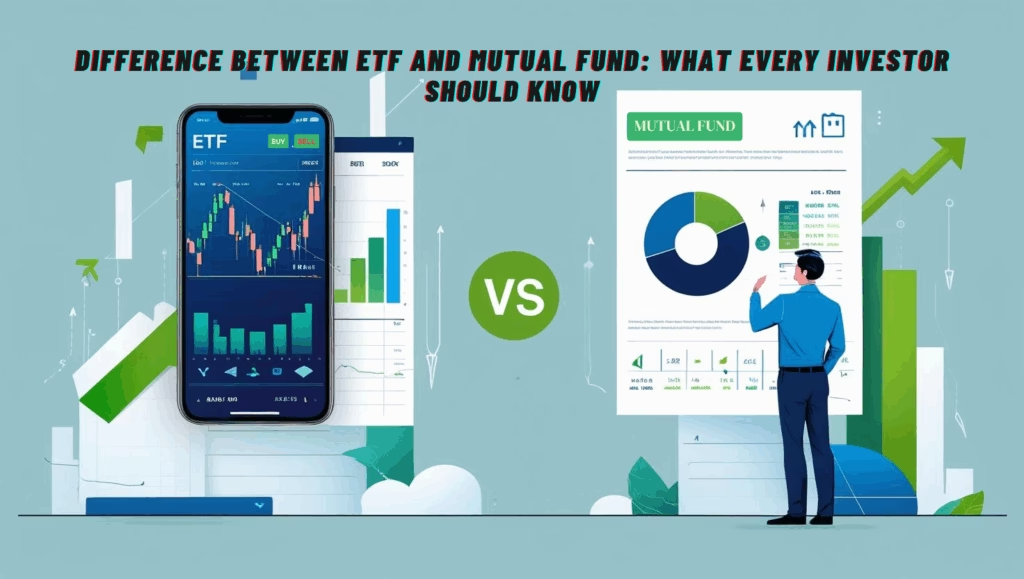Introduction:
In recent times, the Indian financial markets have been undergoing a silent yet significant transformation. Among the many significant changes, ESG (Environmental, Social, and Governance) investment has emerged as a particular and powerful force in reshaping the approach to wealth creation for both institutional and retail investors. ESG is a framework used to evaluate how companies are performing beyond traditional financial metrics. With the global discourse on issues such as climate change, social responsibility, and ethical governance intensifying, ESG investment has evolved from a concept to a mainstream strategy, not just in India but across the globe.
In this blog, we will discuss what ESG investment is, its emergence in India, its significance, its evolution, and its implications for companies, investors, and the broader economy.
Table of Contents
What is ESG Investment?
ESG investment does not rely solely on traditional metrics such as profitability, market share, and revenue, but rather makes investment decisions based on a company’s performance across three non-financial dimensions: Environmental, Social, and Governance.
The three components of ESG are discussed in detail below:
1. Environmental (E):
It assesses the way a company interacts with its natural environment. In this case, investors consider the following aspects before investing in a company:
- Energy use and efficiency
- Water conservation
- Waste management and recycling
- Climate change initiatives
- Carbon emissions
- Impact on ecosystems and biodiversity
For example, a company with high carbon emissions and no proper waste management would be considered a high-risk investment in the ESG framework. Conversely, a company with proper waste management and promoting clean energy, including the use of renewable energy, would score high in the ESG framework.
2. Social (S):
The social pillar focuses on a company’s relationships with its employees, suppliers, the communities in which it operates, and customers. It includes:
- Employee welfare and worker protection
- Human rights policies
- Fairness, diversity, and inclusion
- Customer satisfaction
- Data privacy
For example, a company with a poor track record on key issues such as worker protection and gender inequality will score poorly on the social side of ESG. On the other hand, a company that prioritizes employee welfare and local community development tends to perform well.
3. Governance (G):
Governance refers to the way a company is run – its leadership, audit, internal controls, and shareholder rights. Key factors include:
- Board structure and diversity
- Anti-corruption policies
- Transparency and disclosure practices
Weak governance, such as weak board oversight and a lack of transparency, can lead to reputational and financial losses for a company. On the other hand, strong governance makes a company resilient and ensures a long-term strategic focus.
Why ESG Investment is Gaining Momentum in India:
Several factors are fueling the ESG investment in India:
1. Climate Change and Environmental Concerns:
India is one of the countries most vulnerable to climate change. Investors are gradually becoming aware of the long-term risks of carbon-heavy industries. From renewable energy use to sustainable agriculture, ESG investing plays a crucial role in channeling capital towards environmentally conscious ventures.
2. Changing Investor Mindset:
Millennial and Gen Z investors, a significant segment of the investor base not only in India but across the globe, are values-driven. These investors prefer portfolios that are aligned with environmental sustainability and social impact. This generational shift among investors is largely acting as a catalyst for the adoption of ESG investment policies.
3. Regulatory Push:
ESG investment in India has also grown significantly due to the regulatory push. The Securities and Exchange Board of India (SEBI) has taken steps to formalize ESG disclosure. For example, the Business Responsibility and Sustainability Report (BRSR), launched by SEBI, mandates India’s top 1000 listed companies by market capitalization to disclose ESG metrics. This has led to increased transparency and investor confidence.
4. Global Integration:
Indian companies are forced to align with international ESG standards to attract foreign investment. ESG compliance is gradually becoming a prerequisite for cross-border capital flows, making global ESG investment essential.
Key Trends Driving the ESG Investment in India:
Several key trends are driving the growth of ESG investment in India, some of them are as follows:
1. Growth of ESG-Themed Mutual Funds and ETFs:
Top asset management companies in India, such as SBI, Axis, ICICI Prudential, and Aditya Birla Sun Life, have launched dedicated ESG funds (Mutual Funds and ETFs) that select companies based on their environmental, social, and governance performance. This has made it easier for retail and institutional investors to build ethical portfolios. Assets Under Management (AUM) in ESG funds have increased since 2020.
2. Corporate Commitment to Sustainability:
Large Indian companies like Reliance Industries, Infosys, Tata Group, and Mahindra are increasingly embracing sustainability goals. These companies have announced climate targets and adopted improved governance mechanisms along with the use of renewable energy. This shift has increased investor confidence in ESG-compliant companies.
3. Improved ESG Disclosures and Regulations:
The BRSR framework, launched by SEBI, has made ESG disclosure mandatory for India’s top 1000 listed companies. This detailed reporting is increasing transparency, making investment decisions easier for investors, and reducing the risk of environmental change.
4. Growing Interest of Institutional and Foreign Investors:
Global institutional investors are increasingly considering ESG criteria when investing in the Indian market. Pension funds, sovereign wealth funds, and global asset managers are looking for companies with strong ESG credentials, leading to an increasing demand for businesses with ESG frameworks.
5. Rise of ESG Rating and Analysis Providers:
Platforms like MSCI and CRISIL provide ESG scores and detailed analysis. Indian investors can now use data from these trusted platforms to evaluate companies before investing. These tools support smart ESG investment decisions by measuring performance metrics and sustainability risks.

Government and Regulatory Initiatives:
The rise of ESG investing is not only market-driven but has also taken a sustained and significant shape through proactive steps by government agencies and financial regulators. Indian authorities have introduced several key policies and frameworks to support ESG investing.
1. SEBI’s Business Responsibility and Sustainability Report (BRSR):
In 2021, SEBI introduced the BRSR framework. The BRSR framework mandates ESG disclosure for India’s top 1000 listed companies by market capitalization, from the financial year 2022-23. The BRSR framework replaces the erstwhile Business Responsibility Report (BRR) and places greater emphasis on ESG disclosure. This move by SEBI has significantly improved transparency and made it easier for investors to make ESG investment decisions based on quality information.
2. Reserve Bank of India (RBI) on Climate Risks:
The RBI has acknowledged climate-related financial risks as a potential risk to the stability of India’s financial system. The RBI has emphasized the importance of integrating ESG considerations into its lending practices, which has been highlighted in several publications, including its Financial Stability Report. The RBI is working on guidelines to help banks and Non-Banking Financial Companies (NBFCs) incorporate ESG considerations into their risk assessment framework.
3. Ministry of Corporate Affairs (MCA):
The MCA has provided a framework for ethical and sustainable business conduct in the National Guidelines for Responsible Business Conduct (NGRBC). The guidelines help to better understand the responsibilities and importance of ESG disclosure and encourage companies to voluntarily adopt socially responsible practices.
Challenges to ESG Investment in India:
While ESG investment in India is growing rapidly, this growth is not without challenges. Several market-related and structural barriers exist that limit the overall adoption and effectiveness of ESG investment.
1. Lack of Standardized ESG Metrics:
Among the biggest barriers is the lack of uniform ESG metrics. Different companies use different frameworks, making it difficult to compare ESG scores across companies. This lack of consistency confuses investors and hinders sound investment decisions.
2. Greenwashing:
Many companies misrepresent or exaggerate their ESG initiatives to attract investors, a practice known as greenwashing. Without independent auditing and strong regulatory oversight, such misrepresentation can undermine the credibility of ESG investment.
3. Short-Term Investment Mindset:
Short-term and return-focused investors are dominating India. On the other hand, ESG investment requires a long-term perspective, as its value is revealed through risk reduction and sustainable growth over many years.
4. Lack of Awareness Among Retail Investors:
There is still a lack of awareness among retail investors in India about ESG investment and its benefits. Many still believe that ESG investing is a foreign or elitist concept rather than a viable long-term strategy. This knowledge gap hinders the demand for ESG funds.
5. Insufficient ESG Data from Medium and Small-Cap Companies:
India’s top 1000 companies disclose their ESG data as per SEBI’s BRSR framework, but mid and small-cap companies lag behind due to cost, capacity, and regulatory pressures, leaving a significant portion of the market outside the ESG radar.
6. Regulatory Evolution Still Underway:
While other agencies, including SEBI, are taking various regulatory steps, India’s ESG regulatory framework is still evolving, which will leave ESG investments partially regulated until it matures.
The Future of ESG Investment in India:
The future of ESG investment in India looks promising, driven by a combination of investor awareness and policy changes. As climate risk, ethical governance, and social justice become central to global financial strategies, India is expected to align with this paradigm.
SEBI’s BRSR framework, RBI’s recognition of climate-related financial risks, and the entry of more ESG-focused funds into the market will boost investor confidence. Institutional investors, both domestic and global, are increasingly demanding ESG compliance as fund criteria, fintech innovations are trying to make ESG data more transparent and accessible, and even retail investors are emphasizing ESG data for investment decisions.
India’s ambitious climate targets, such as net-zero emissions by 2070, will also act as a strong tailwind. Companies that actively embrace ESG standards will benefit from benefits such as better valuations, stronger stakeholder trust, and lower risk premiums.
With a mature regulatory framework and deeper awareness, ESG investing will move from an alternative strategy to a mainstream norm. In the coming decade, ESG can be seen as a key pillar of sustainable economic growth in India, demonstrating that financial returns are aligned with social and environmental progress.
Conclusion:
The rise of ESG investment in India indicates that a shift in capital allocation and valuation is underway. Today’s investors are not just focused on profit margins, but are aligning their portfolios with sustainability and long-term impact. With increasing regulatory support, greater corporate accountability, and a growing number of informed investors, ESG investing is gradually moving from the periphery to the center of India’s financial landscape.
Despite challenges such as greenwashing, lack of awareness among retail investors, and the lack of standardized ESG metrics, the momentum is unabated. India’s transition to a green economy, in line with global investors, represents a powerful lever for reshaping the market and mindset for ESG.
For investors, ESG is more than just an ethical choice. For companies, it is a roadmap to future sustainability and reputation that demands more than just financial returns.
In conclusion, it can be said that in a world defined by social change and climate urgency, ESG investing is not only growing but redefining the future of finance.



